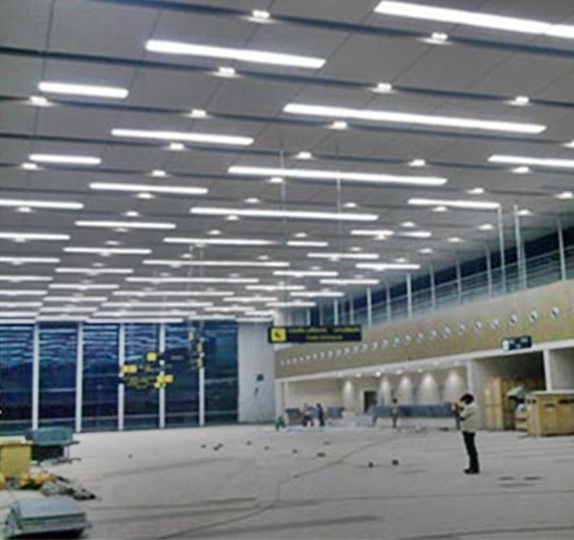
While BAPL's bosses suggest that this project will help build a community of residents, there are allegations that this is actually a real estate project masquerading as an airport, point out Paranjoy Guha Thakurta and Mohammad Ghazali.
This is the first part of the series on the Bengal Aerotropolis.
Part II: Bengal Aerotropolis's fate hangs in balance
It's a unique project boasting of a number of 'firsts'. Coming up at Andal near Durgapur in West Bengal is India's first aerotropolis, a tongue-twister meaning airport-cum-metropolis.
What has been showcased as a grandiose scheme that would assist in the economic revival of the state, the project being set up by Bengal Aerotropolis Projects Limited (BAPL) is currently mired in controversies galore.
The project has been delayed due to resistance to acquiring land from local people.
What is worse, the promoters of BAPL are embroiled in messy legal tussles with accusations of forgery and fraud flying thick and fast.
The aerotropolis, formally inaugurated in September 2013 and named after Kazi Nazrul Islam, Bengal's famous poet, is coming up along the national highway near the industrial township of Asansol.
It was originally set up as a joint venture between the privately-owned Pragati 47 Development Limited (Pragati 47) and the government of India-owned public sector Housing and Urban Development Corporation (HUDCO), through an entity called Pragati Social Infrastructure & Development Ltd (PSIDL).
…
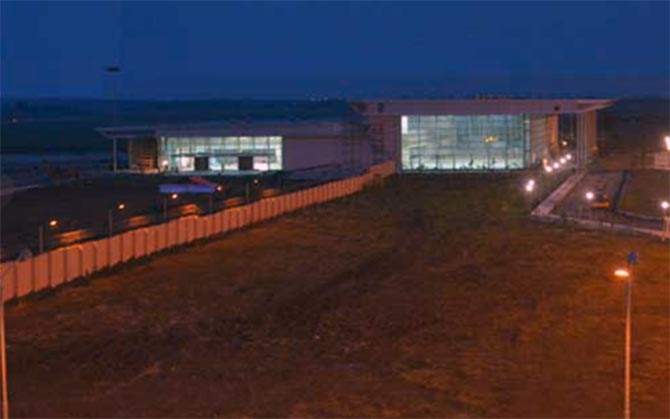
This is the first airport project in India to attract investments from the Changi Airport Group (CAG) that owns and operates the international airport at Singapore.
This project has entailed the largest acquisition of land – 1,818 acres so far – by the West Bengal government.
It is also one of the largest infrastructure projects of its kind in eastern India with an envisaged direct investment of $150 million (over Rs 900 crore) by BAPL and an estimated overall investment of Rs 10,000 crore by the time the project is completed.
BAPL's bosses suggest that this project will help build a community of residents around the airport with modern urban facilities, including facilities for education and health care.
Their critics claim that this is actually a real estate project masquerading as an airport. While BAPL says land has been acquired in a fair and legal manner, those whose land has been acquired claim they have not been properly compensated.
…
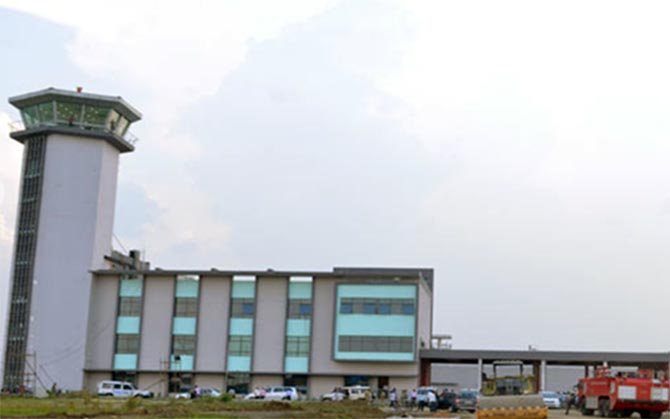
Apart from the firms mentioned, there are various other government bodies as well as privately-owned corporate entities involved in setting up the project: these are the state government's West Bengal Industrial Development Corporation (WBIDC), Infrastructure Leasing and Financial Services Ltd. (IL&FS), one of India's leading infrastructure development and finance companies, Och Ziff, a $30 billion hedge fund listed on the New York Stock Exchange, Citystar Infrastructures Ltd. and Lend Lease Company (India) Ltd., which have invested in this venture.
The list also includes AMIF, I Ltd., Mauritius, a corporate entity managed by Och Ziff for investors, Abu Dhabi Commercial Bank and Macquarie, a multibillion dollar financial services company based in Australia.
The complex ownership structure of the project has resulted in a series of legal disputes among the promoter groups. BAPL's chairman Arvind Pande and the company's managing director Partha Ghosh told the writers of this article that these disputes have not delayed the implementation of the project in interviews.
They claim the airport will be operational by the end of 2014 -- the Union Ministry of Civil Aviation had approved the development of the airport five years earlier on 11 December 2008.
However, there are sceptics who point out that this deadline may not be achieved as the project has missed earlier deadlines, the last one being Poyla Baishakh (or the first month of the Bengali New Year) which was on 14 April.
…
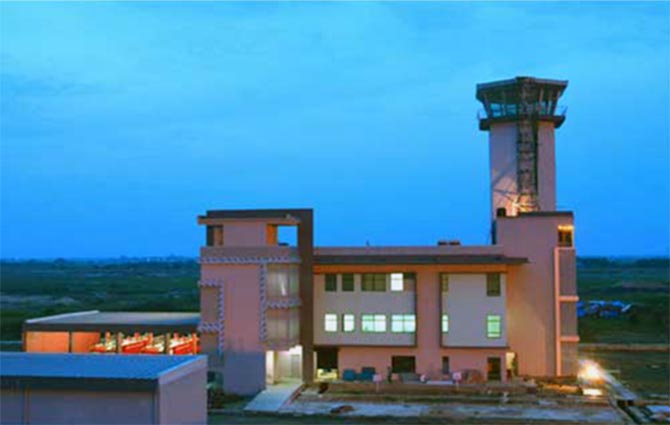
The promoters of Pragati 47, Raj Shekhar Agrawal and his wife Vandana Agrawal, have publicly aired a slew of allegations against the top brass of BAPL.
Agrawal, who along with his wife, own 23.1 per cent equity shares of Pragati 47, alleges that he was forced to resign from the company’s board of directors as a result of fraud and criminal conspiracy between Ghosh and his associates including Arun Banerjee, Ram Ratan Modi and Utsav Parekh as well as representatives of AMIF I Ltd (managed by Och Ziff).
Of the individuals named, Parekh has a rather colourful past. Father-in-law of Nationalist Congress Party leader and former Union minister Praful Patel’s daughter Niyati, he is associated with companies developing airports at Gondia, near Nagpur, Maharashtra (also in collaboration with the Changi group) and another one at Lucknow.
A real estate baron and a player in the stock-markets, Parekh's firms (including Stewart & Makertich in the SMIFs group) have been named and implicated in various scandals in the past, including the scams involving brokers Harshad Mehta and Ketan Parekh.
…
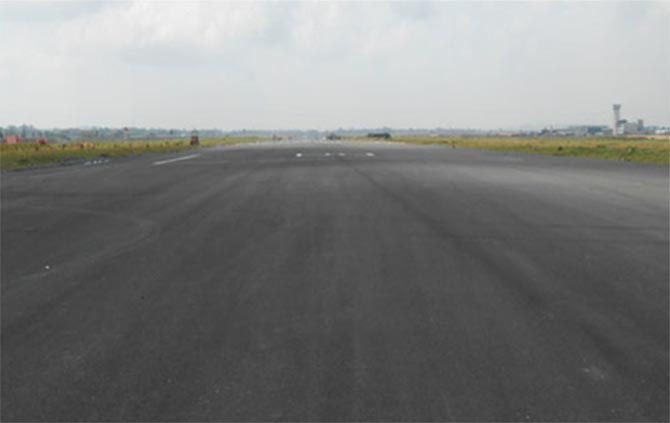
One of his companies was banned from trading in securities by the regulator of the country’s capital markets, the Securities & Exchange Board of India (SEBI) for rigging the prices of shares of DSQ Biotech Limited. This decision was upheld by the Supreme Court in April 2010.
(Replying to an e-mail sent to him by the authors of this article, Parekh chose not to respond to the questions raised and stated that his colleagues in the BAPL management were competent to answer the queries.)
Agrawal claims that at the time he and wife resigned from BAPL's board of directors, he was assured by Ghosh and representatives of Och Ziff that their exit would be facilitated by them.
However, on 8 June 2010, AMIF denied that it had agreed to facilitate Agrawal’s exit through an e-mail communication and offered to sell its and Agrawal’s shares in Pragati 47 to the company's promoter shareholders.
Ghosh refutes Agrawal's allegations and holds him responsible for the delay in the progress of the project by writing to Changi alleging irregularities on the part of BAPL in obtaining land from WBIDC and by casting aspersions on BAPL's directors.
He adds that he had to travel to Singapore to meet Changi officials to assuage their apprehensions and ensure their continued support for the project.
(Changi's representative on the BAPL board, Eugene Gan, distanced himself and his group from the controversy in an emailed response, while messages to Singapore's Ministry of Finance – the Changi group is owned by the Singapore government – went unanswered.)
…

While Ghosh claims that Agrawal's allegations of fraud and forgery were found to be false for which he expressed regrets, Agrawal's version of events is different.
He claims the CEO of BAPL hurriedly convened a board meeting in December 2009 to raise "call money" for BAPL shares which was linked to achieving the milestone of acquiring 1,000 acres of land whereas the company had actually secured possession of 533 acres.
Agrawal further alleges that Ghosh acted in an unauthorised manner and further, that more than 20 million shares of BAPL were transferred from PSIDL to Citystar in a "fraudulent" manner and which has been challenged by HUDCO in a petition before the Company Law Board.
In an affidavit filed in the high court in Kolkata in response to Agrawal's application, HUDCO has supported some of his allegations of forgery, back-dating of documents with malafide intentions, collusion and conspiracy to under-price shares by a section of BAPL's management led by Ghosh and his associates for personal gain thereby resulting in HUDCO losing Rs 14 crore.
While these allegations have been denied, an email sent to the head of the government-owned HUDCO was not replied to.